Exploring climate transition risks and opportunities
Climate scenario analysis is
a powerful method by which companies can assess potential risks and opportunities from society’s response to climate change and challenge business as usual assumptions.

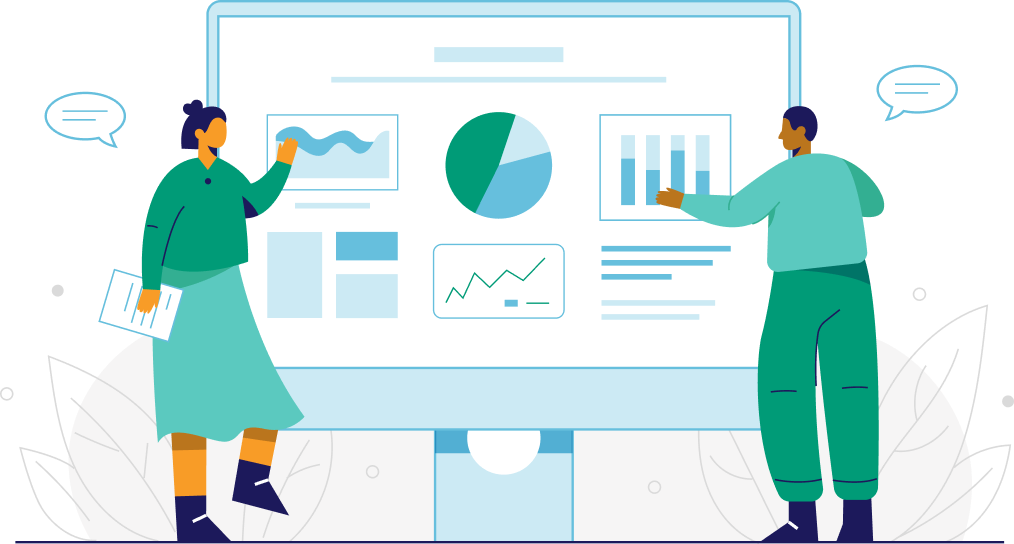
Our tool
models multiple drivers across the energy, food and land use sectors, such as carbon pricing, consumer shifts, and technology innovations to create a wide range of climate scenarios that can be used for climate scenario analysis.
Food, agriculture, and forests
Climate change impacts the food sector through both physical impacts and transition impacts. For example, agriculture and forest emissions could be included in greenhouse gas pricing and some consumers may shift towards alternative proteins. The food, agriculture and forest products sectors will have to adapt and transform.
To help inform decision-making for businesses, investors, and policymakers, we’ve produced a new set of reference scenarios specific to food, agriculture, and forest products. These are distilled in an online scenario catalog that allows companies to browse scenario options, understand underlying scenario assumptions, and explore potential market and environmental implications.
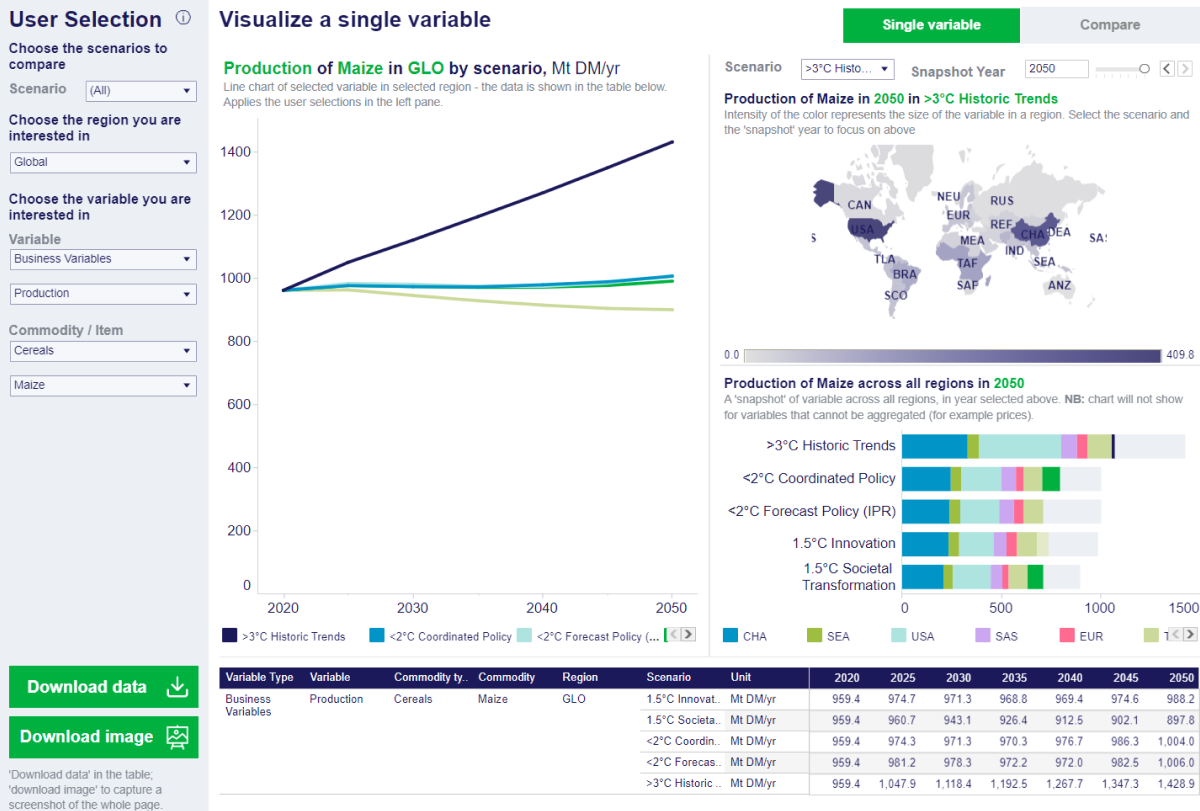
Energy systems
Climate change can create significant transition risks in the energy sector as society reacts to the effects of a changing climate.
The Energy Climate Scenario Catalog helps users by enhancing transparency, consistency, and comparability of current publicly-available scenarios. The Catalog supports scenario choices — how to choose, interpret and navigate climate scenarios. It also helps with the scenario process — how to apply scenarios under which conditions, and how to manage sensitivity analysis, data availability and reliability.
The Energy Climate Scenario Catalogue was updated to v2.0 in February 2023. To access v1.0, please click here.
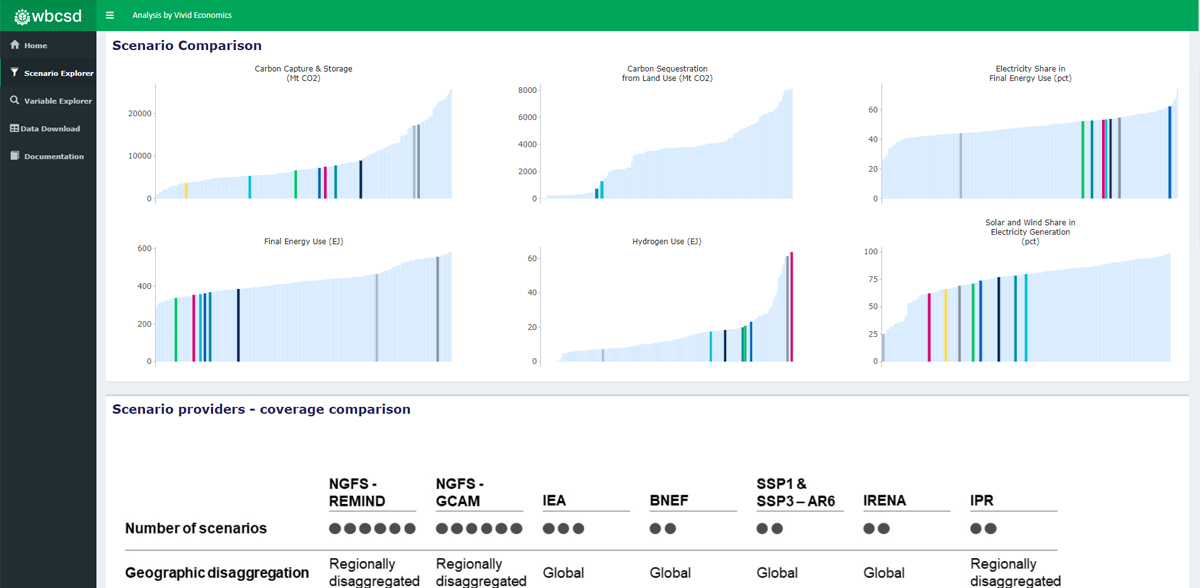
Demystifying scenario analysis
Reference scenarios help companies to pressure test business resilience. This analysis is an important aspect of meeting emerging regulatory and voluntary (TCFD) guidance.
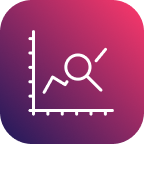
Context
Change in the food and energy system is inevitable, but uncertain, due to a range of demographic and climate pressures. Climate scenario analysis helps companies contemplate plausible climate pathways. It does not, however, predict the future.
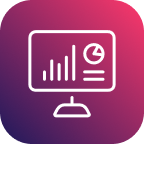
Strategic Value
Scenario analysis can generate strategic insights and enable companies to position themselves as climate and industry leaders. The TCFD approach identifies risks but also uncovers key value streams under climate paradigms.
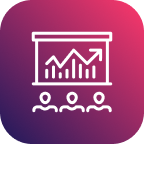
Disclosure Value
Climate disclosures are increasingly non-voluntary. The launch of the International Sustainability Standard Board at COP26 marked a new era in climate disclosures.
Climate scenario analysis is
- An analysis of different hypothetical, plausible pathways for the future due to climate change
- A way to understand possible risks and opportunities created by the impacts of, or response to, climate change
- A tool to enhance strategic thinking and challenge standard assumptions about the future
- A way to explore alternatives to ‘business as usual’ assumptions and stress test your portfolio
Climate scenario analysis is not
- A prediction, forecast, or sensitivity analysis of the future
- A full description of the future
- An analysis of risks unrelated to climate change
- A strong basis for peer benchmarking within an industry given the complexity of future strategic shifts
- An exercise to set Net Zero Targets, such as the ones recommended by the Science Based Targets initiative
More resources
The documents below are available to download and provide a deeper context on the webtool, scenario design, and modelling process
Food, Agriculture, Forests Transition Guide
A companion guide that presents learning from the development of the Climate Scenario Tool and its application to transition planning.
Food, Agriculture, Forests Scenarios analysis and application guide
An overview of the use of climate transition scenarios to assess strategic resilience to climate risk and inform disclosures.
Food, Agriculture, Forests Technical guide
A description of the modeling methodology underlying the scenarios.
Food, Agriculture, Forests Key scenario insights
A summary of the scenario findings.
Energy Technical Documentation
Energy Reference Approach Report
These Climate Scenario Catalogs are just one aspect of a wider suite of climate transition support being produced by WBCSD with analysis by Vivid Economics. For further information and related resources, you may wish to explore:
- WBCSD TCFD Response and Development Guidance
- TCFD Additional Supporting Guidance
- TCFD Guidance on Metrics, Targets, and Transition Plans
- Glasgow Financial Alliance for Net Zero (GFANZ)
- GFANZ Expectations for Real-economy Transition Plans
- WBCSD Preparers Forum Report for Food, Ag and Forest Products
- WBCSD Demystifying Climate Scenario Transitions
Disclaimer: Although these climate scenarios provide a broad range of future climate pathways, WBCSD would like to reaffirm that a 1.5°C pathway for society is the only option to create a net-zero, nature positive and more equitable future.
Self Paced Training
Self-Paced Training, created in collaboration with PwC, is available on the WBCSD Learning Platform. The training is free and is designed to support users of all skill levels in becoming proficient in the tool’s functionality, capabilities, and application.
